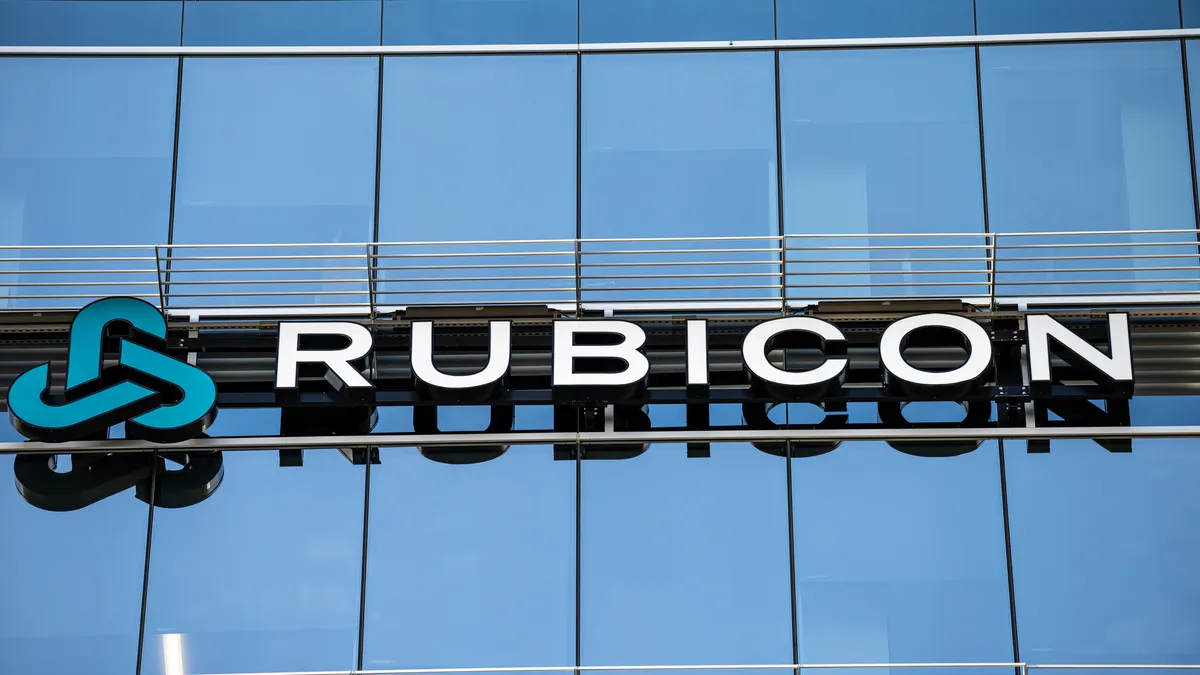Dive Brief:
- Rubicon completed a one-to-eight reverse stock split at the close of trading Tuesday afternoon in an effort to ensure compliance with New York Stock Exchange requirements.
- Shares traded at $2.35 when the market opened on Wednesday morning, up from 30 cents at the end of trading on Tuesday.
- The waste broker and software company received a notice of non-compliance from the NYSE in late March after its stock traded below $1 per share for 30 days. This started a six-month cure period that could have led to delisting.
Dive Insight:
Rubicon’s board approved authorization for a reverse stock split in June, meaning the company could reduce the number of overall shares to make the resulting shares more valuable.
The technology company faced a complicated path after going public via a special purpose acquisition corporation process in August 2022. Leaders have touted multiple efforts to reach profitability in the coming months, including debt refinancing and cost-cutting, with the expectation to generate positive earnings in Q4.
Going the SPAC route was once seen as a way to accelerate the process of taking a company public, but outcomes have varied in recent years. Because investors don’t know which company the SPAC will target when they initially commit funds, proceeds from the SPAC going public are held in a trust account. Investors then have the option to redeem their shares from the trust account before the SPAC combines with an existing business. Analyses from Reuters and others have shown that while redemption rates ranged from 7% to 43% in early 2021, that grew to an average rate of 81% in 2022 as the number of SPAC deals declined and some existing ones were terminated.
Chris Spooner, Rubicon’s executive vice president of finance, said during a Sept. 18 SHARE Series virtual investor event that this redemption rate situation presented a challenge for Rubicon.
“We had 99.7% redemptions and it left the business initially undercapitalized in the public markets,” he said, going on to describe efforts to refinance senior debt, extend maturity rates and bring in more equity capital from existing investors. He also noted how the company has “done a tremendous job in terms of reducing Rubicon's cash burn,” cutting an estimated $50 million in annualized costs. That included layoffs in late 2022 and various productivity efforts, such as the use of artificial intelligence.
Speaking at the event, Spooner said the reverse stock split "should solve any compliance challenges that we have there and it's really more of a logistical exercise at this point.”
Rubicon reported $327 million in revenue through Q2 and sees room to expand within its core brokerage business, as well as the smaller software-as-a-service category for local governments. Spooner described WM and Republic Services as key competitors in the first category, and Routeware in the second. In the latest partnership for its city business, Rubicon recently announced a five-year agreement for the Phoenix Public Works Department to use its software.
The company also hopes to resume growth through acquisitions, after completing five since its founding.
“That was really a core part of the thesis for us going public was to bring in a significant amount of capital from the de-SPAC that would allow us to continue to roll up this aspect of the industry. Obviously that didn't happen, but as we approach cash flow positive early next year we're excited to get back to doing M&A,” said Spooner, noting that Rubicon will likely focus on “asset-light” companies that “specialize in niche material types that we can then cross-sell into the existing Rubicon portfolio that we've built."










